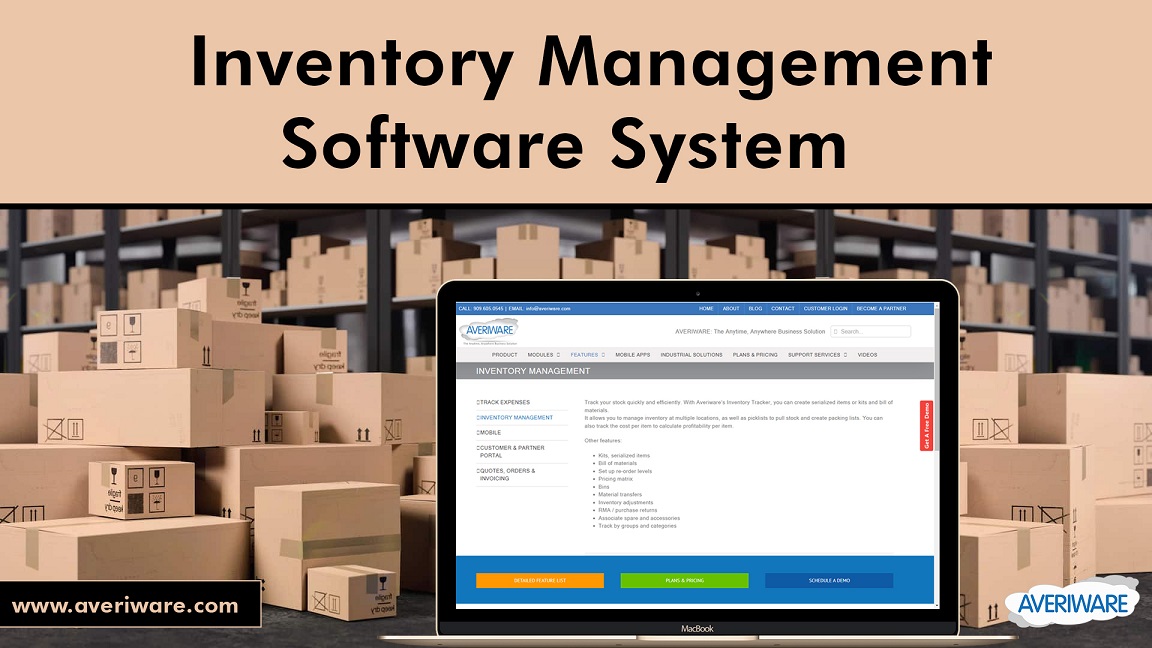Inventory management is fundamental for all sizes to maintain optimal stock levels, fulfill customer orders promptly, and maximize helpfulness. Averiware offers a robust inventory management software solution designed to streamline inventory processes and enhance operational efficiency. Let’s look into basic research and how Averiware’s software can enrich your small business practices.
What is Inventory Management:
Inventory management involves the strategic planning and control of stock levels throughout the supply chain, from procurement to the sale of goods. It enables businesses to identify the right quantity of stock to order, the optimal timing for ordering, and the efficient allocation of resources. By tracking inventory movements and trends, businesses can ensure sufficient stock availability to meet customer demand while minimizing excess inventory and associated costs.
Optimizing Stock Levels:
Averiware facilitates accurate forecasting and demand planning, allowing businesses to optimize stock levels effectively. By analyzing historical sales data and market trends, businesses can anticipate demand fluctuations and adjust their inventory levels accordingly. This proactive approach ensures that businesses maintain the right balance of stock to fulfill customer orders promptly while minimizing the risk of overstocking.
Managing Cash Flow:
Inventory represents a significant investment for businesses, tying up valuable financial resources until it is sold. Averiware helps businesses strike the right balance between maintaining sufficient stock levels and optimizing cash flow. By minimizing excess inventory and improving inventory turnover rates, businesses can free up cash flow and allocate resources more efficiently to support growth and expansion initiatives.
Preventing Deadstock:
It is essential for minimizing the risk of deadstock, or unsold inventory. Averiware’s software enables businesses to monitor inventory levels closely, identify slow-moving or obsolete stock, and take proactive measures to prevent overstocking. By implementing effective inventory control measures and optimizing stock rotation strategies, businesses can minimize the financial impact of deadstock and maximize desirability.







